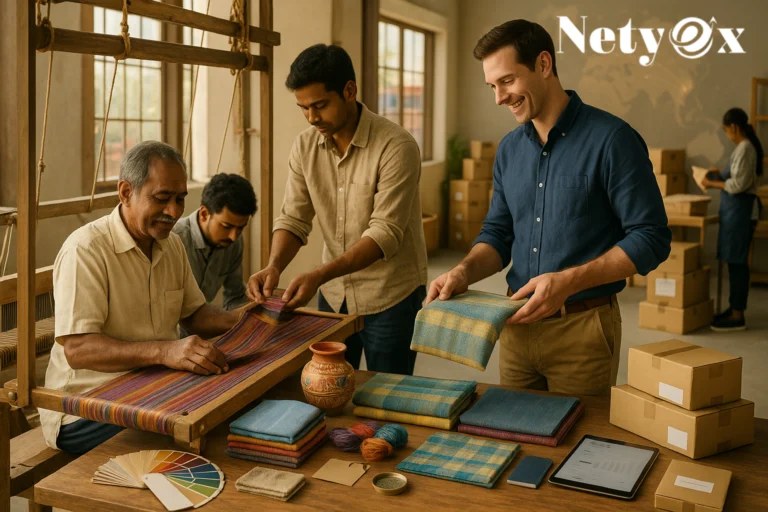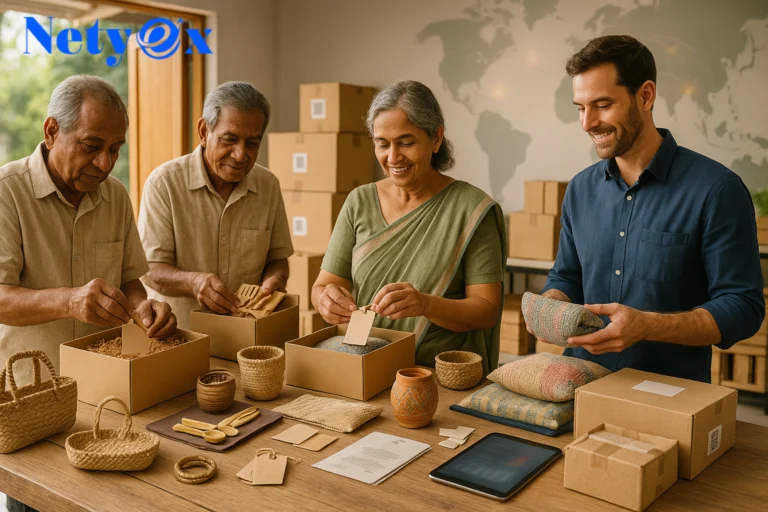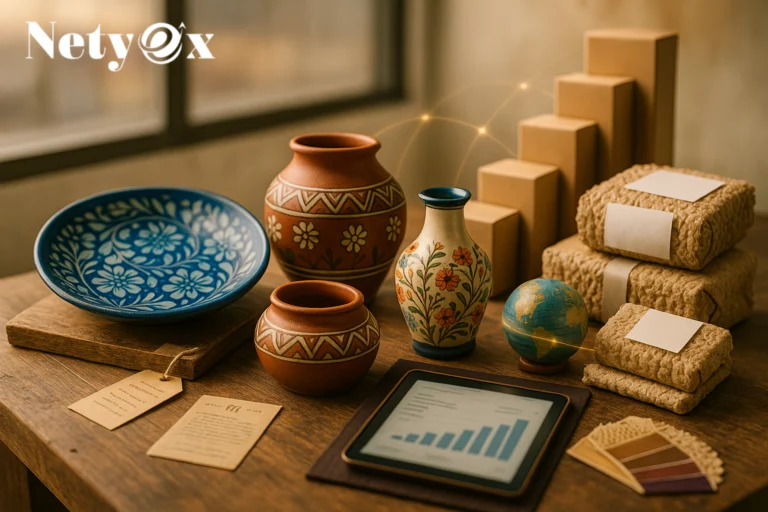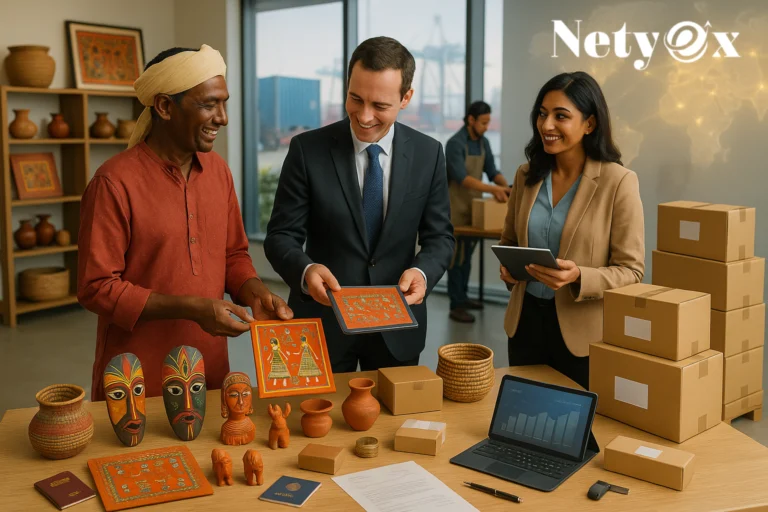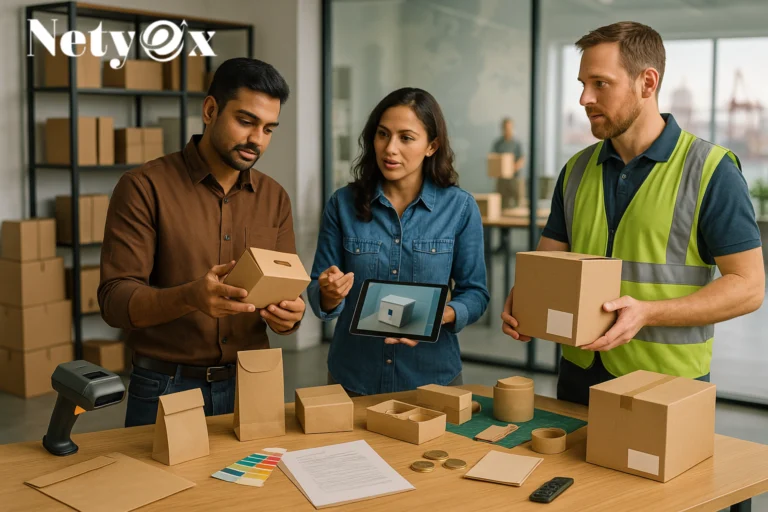Introduction to Netyex and Its Role in Global Textile Trade
The textile industry is one of the largest sectors in global trade, with billions of dollars in exports every year. However, entering international markets requires strict adherence to legal, environmental, and ethical standards. Netyex, a trusted name in textile exports, has established itself as a pioneer in ensuring compliance across every stage of production and trade. From sourcing raw materials to delivering finished textiles, Netyex guarantees that every process aligns with international requirements, making it a reliable partner for buyers worldwide.
Understanding Compliance in Textile Exports
Why Compliance Matters in International Trade
Compliance is more than a legal necessity; it is a mark of credibility and trust. For textile exporters, non-compliance can result in shipment rejections, financial penalties, or even permanent trade bans. By maintaining compliance, exporters like Netyex not only avoid risks but also secure their reputation as reliable suppliers.
Key Global Regulations Governing Textile Exports
The textile export industry is shaped by several international regulations, including:
- OEKO-TEX Standard 100: Ensuring textiles are free from harmful chemicals.
- Global Organic Textile Standard (GOTS): Setting requirements for organic fibers.
- ISO Certifications: Guaranteeing international quality and safety benchmarks.
- Trade Laws & Tariff Agreements: Varying by country, ensuring fair practices.
Netyex carefully navigates these standards, ensuring that every shipment meets the expectations of the target market.
Netyex’s Commitment to Quality and Standards
Meeting International Quality Certifications (ISO, OEKO-TEX, GOTS)
Netyex holds globally recognized certifications that prove its products meet the highest standards. By maintaining ISO and OEKO-TEX certifications, Netyex assures buyers that its textiles are safe, sustainable, and of premium quality.
Ensuring Ethical Sourcing and Fair Trade
Beyond quality, Netyex emphasizes ethical sourcing. This includes working with certified suppliers, ensuring that raw materials are traceable, and engaging only in fair trade practices. Buyers can be confident that every textile is produced responsibly.
Legal and Environmental Compliance Measures
Adherence to Import-Export Laws and Trade Agreements
Netyex’s legal compliance team ensures that every shipment aligns with the import-export regulations of the destination country. From customs documentation to tariffs, Netyex minimizes risks of delays and rejections.
Sustainability and Eco-Friendly Manufacturing Practices
Environmental sustainability is a growing priority in global trade. Netyex uses eco-friendly dyes, water-saving technologies, and energy-efficient machinery, proving its dedication to green textile production.
Netyex’s Monitoring and Verification Systems
Internal Audits and Compliance Checks
Regular audits are carried out to review every aspect of production. Netyex maintains strict quality control at multiple stages, reducing chances of non-compliance.
Use of Technology in Tracking Textile Supply Chains
Digital platforms and blockchain technologies allow Netyex to track raw materials and finished products across the supply chain, offering buyers full transparency.
Worker Welfare and Social Responsibility
Safe Working Conditions and Labor Rights
Netyex complies with international labor laws, ensuring fair wages, safety measures, and healthy working conditions.
Transparency in Employment Practices
All employment records are maintained transparently, preventing forced or child labor in the supply chain.
Customer Assurance and Trust Building
Providing Certificates of Compliance to Buyers
One of the strongest ways Netyex builds trust with its global clients is by providing certificates of compliance with every order. These certificates verify that the textiles meet specific regulations of the importing country, whether related to quality, sustainability, or ethical sourcing. For international buyers, this documentation reduces risks and ensures peace of mind.
Building Long-Term Global Partnerships
Compliance isn’t just about following rules—it’s about fostering relationships. By consistently meeting standards, Netyex develops long-term partnerships with buyers in Europe, North America, Asia, and beyond. This reputation for reliability positions Netyex as a preferred supplier in the highly competitive textile export industry.
Case Studies: How Netyex Achieved Compliance Success
Example of EU Textile Market Compliance
The European Union has some of the strictest textile regulations, particularly concerning chemicals and sustainability. Netyex successfully penetrated this market by adopting REACH compliance (Registration, Evaluation, Authorisation, and Restriction of Chemicals). As a result, European buyers trust Netyex for eco-friendly and safe textiles.
Example of US Import Regulations Fulfillment
The US market emphasizes labor rights and product safety. Netyex addressed these concerns by obtaining Fair Trade certification and ensuring full traceability of its supply chain. This compliance allowed Netyex to expand exports to major US retailers.
Common Challenges in Textile Export Compliance
Changing Global Trade Regulations
One of the most significant hurdles in textile exports is the frequent updates in trade regulations. Different countries may change import restrictions, tariff structures, or product labeling requirements, making compliance a moving target.
Supply Chain Complexity
Modern supply chains often span multiple countries. For Netyex, ensuring that every supplier—from raw material providers to dye manufacturers—meets compliance standards requires rigorous monitoring and communication.
How Netyex Overcomes Compliance Challenges
Continuous Training and Staff Education
Netyex invests heavily in staff training programs that keep employees updated on the latest compliance requirements. This ensures that compliance isn’t just a department’s job but a company-wide responsibility.
Collaborating with International Experts
By working with compliance consultants, trade organizations, and legal experts, Netyex stays ahead of regulatory changes. This proactive approach prevents costly mistakes and ensures smooth export operations.
The Future of Compliance in Textile Exports
Role of AI and Digitalization in Compliance Monitoring
Netyex is exploring artificial intelligence tools that can predict regulatory changes, monitor supplier performance, and automate compliance checks. These technologies will make compliance faster and more cost-efficient.
Global Trends Towards Green and Ethical Textiles
Consumer demand is shifting towards sustainable and ethical fashion. Netyex is already aligned with this trend by adopting eco-friendly production methods and ensuring fair labor practices. This forward-thinking approach secures its competitive edge in the textile industry.
FAQs on Netyex and Textile Export Compliance
Q1: What certifications does Netyex hold for textile exports?
Netyex is certified with ISO, OEKO-TEX, GOTS, and Fair Trade standards, ensuring its products meet international compliance benchmarks.
Q2: How does Netyex ensure supply chain transparency?
Netyex uses digital tracking systems and collaborates only with certified suppliers to guarantee transparency and compliance.
Q3: Does Netyex focus on sustainability in textile exports?
Yes. Netyex adopts eco-friendly manufacturing practices, reduces carbon emissions, and uses safe dyes to support global sustainability.
Q4: What happens if a country changes its trade regulations?
Netyex has a dedicated compliance team and partnerships with legal experts to quickly adapt to any new trade rules.
Q5: How does Netyex protect workers’ rights?
The company ensures safe working conditions, fair wages, and zero child labor, aligning with global labor standards.
Q6: Why should international buyers trust Netyex?
Because Netyex provides certificates of compliance, transparent documentation, and consistent quality assurance, making it a trusted partner worldwide.
Conclusion: Netyex as a Trusted Leader in Textile Export Compliance
In today’s competitive global textile market, compliance is not optional—it is essential. Netyex has distinguished itself as a compliance-driven exporter that prioritizes quality, sustainability, and ethical practices. From obtaining international certifications to ensuring fair labor conditions and eco-friendly production, Netyex goes above and beyond industry expectations.
For global buyers, choosing Netyex means partnering with a supplier who not only delivers premium textiles but also ensures every step of the process aligns with international trade laws and ethical standards. By staying ahead of evolving regulations and embracing technology, Netyex is shaping the future of compliant, sustainable, and trustworthy textile exports.




